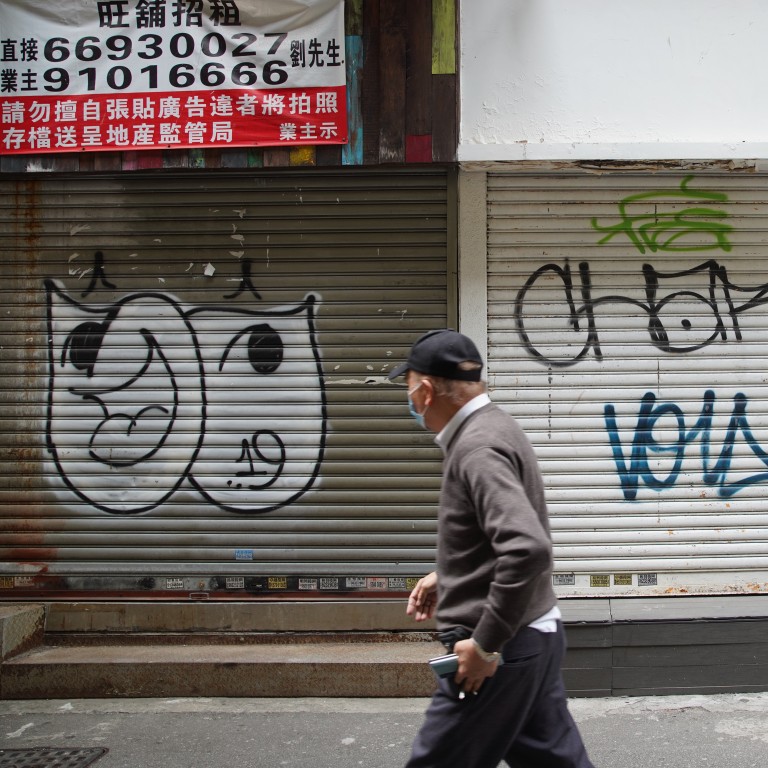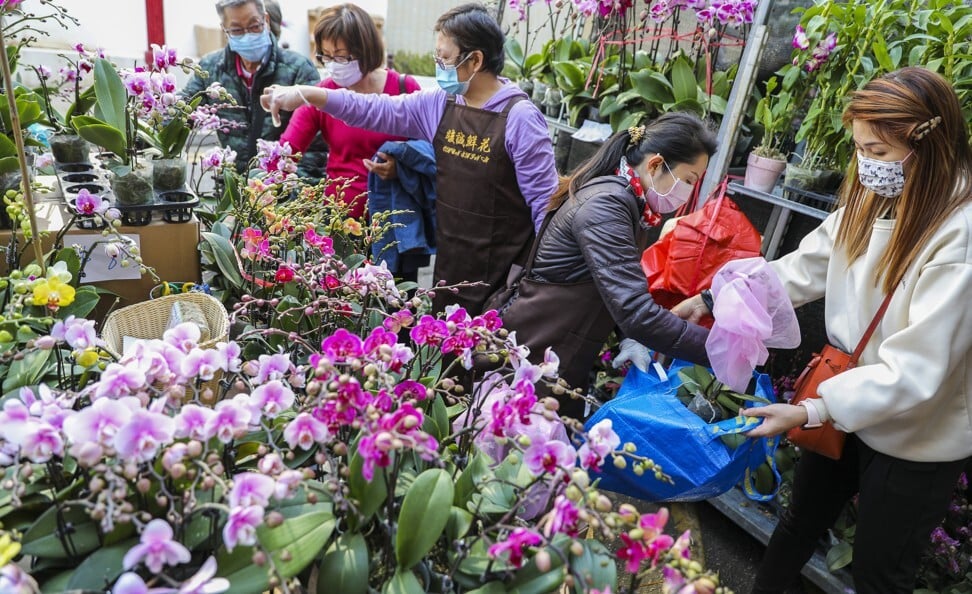
Coronavirus: Hong Kong faces new unemployment high, but finance chief warns worse may follow Lunar New Year
- Paul Chan issues dire predictions for city’s economy, with unemployment and business closures rampant
- Amid gloomy prospects, ray of light for florists as government decides Lunar New Year flower fairs can go ahead in traditional format, subject to curbs

Referring to an increase in bankruptcies and company closures, he said battling Covid-19 for nearly a year had taken a huge toll on businesses, which were repeatedly made to shut their doors or reduce operating hours to guard against infections.
“These extensive restrictions have exerted considerable pressure on the economy and people’s livelihoods,” Chan said, adding many businesses were hanging by a thread.
“If the coronavirus is not under control as soon as possible, I am afraid that more business closures and lay-offs may occur after Lunar New Year.”
The number of bankruptcy applications in 2020 surged 6.6 per cent year on year to nearly 8,700 cases, according to data from the Official Receiver’s Office. Some 450 compulsory winding-up petitions were filed, a 7.2 per cent year-on-year jump.
Hong Kong has suffered four waves of infections since the first Covid-19 cases hit the city in January last year, prompting health officials to force the closure of thousands of businesses for a total of 100 days and counting.
Hong Kong budget 2021-22: finance chief reserved on cash handouts
Among those ordered to suspend operations to limit social gatherings and curtail the spread of Covid-19 were gyms, bars and beauty salons.
“The fact of the matter is that many businesses and average wage earners are put under immense pressure,” Chan said.
Chan feared the prospects for catering and retail sectors would remain downbeat in the weeks leading up to the Lunar New Year holiday – typically peak season for consumer spending – with the coronavirus pandemic showing no signs of abating.

Also on Sunday, a government source said a decision had been taken to run the Lunar New Year markets in their traditional format, but with more stringent anti-epidemic and crowd-control measures to minimise the contagion risks from gathering crowds.
Local florists had stormed out of a meeting with health authorities last Monday in protest against what they saw as the abrupt cancellation of the annual fair, relied on by sellers for generating the bulk of their revenues.
Florists said they had spent millions buying seeds and buds up to two years ahead of the event.
A government spokesman initially said last week that alternative locations were being identified, such as public housing estates, so the fairs could be held on a smaller scale, easing the financial impact on vendors when compared with outright cancellation, while safeguarding public health.
Health experts have said limits should apply to the number of people entering a flower-selling venue at a time, and how long each visit should last.
Florists hit by Lunar New Year fair cancellation lament ‘lack of help’
In his blog, Chan admitted the government rolling out more than HK$310 billion (US$40 billion) of Covid-19 relief measures to affected sectors was just a drop in the ocean, with many businesses still in dire straits.
Andy Kwan Cheuk-chiu, director of the ACE Centre for Business and Economic Research, said he expected the unemployment rate to continue rising in the first quarter of this year as stringent social-distancing measures stifled livelihoods.
“The pandemic has lasted longer than expected and the economy is in very poor shape,” Kwan noted.
“We have no choice but to suffer some more in the near term, until the public health crisis is under control and businesses can get back to normal.”
Kwan also pointed out that the city was expected to post its highest budget deficit on record, forcing the government into tightening purse strings.
The city’s financial reserves have shrunk 30 per cent to HK$800 billion over the past year, driven by the massive relief packages doled out to help the economy through the health crisis.
Kwan warned that government reluctance to allocate funding to hard-hit sectors in the coming months could push some retail and catering businesses into bankruptcy.
On the other hand, Chinese University economist Professor Terence Chong Tai-leung reckoned the unemployment rate would increase only slightly because joblessness in hard-hit sectors had already stabilised.
He forecast the unemployment rate for the final three months of 2020 to hit 6.5 or 6.6 per cent, a slight increase on the current 6.4 per cent.
“The industries where unemployment is fluctuating are the retail and catering sectors, and this is due to the government’s social-distancing measures,” Chong said.
He said the best way to address unemployment was to lift social-distancing restrictions on businesses such as gyms and restaurants so people could go back to work.
The finance minister said HK$6.6 billion from the Anti-epidemic Fund had been allocated to create 30,000 short-term positions in public and private organisations for the next two years.
About 40 per cent of the opportunities were targeted at lower-skilled work such as gardening and hygiene control.
Some 4,400 jobs were also created for fresh graduates expected to enter the job market in the next year or so.
Chan said the Development Bureau had launched a programme subsidising employers to hire graduates in fields such as engineering, construction and urban planning.

